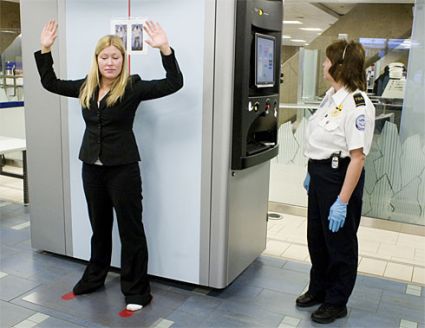European Parliament concerned about virtual strip search
 Strasbourg - The European Parliament on Thursday criticized the use of virtual strip-search machines in Europe's airports, saying they could violate citizens' privacy.
Strasbourg - The European Parliament on Thursday criticized the use of virtual strip-search machines in Europe's airports, saying they could violate citizens' privacy.
Body scanners use radio waves to display full-body images that reveal whether passengers are concealing weapons or explosives under their clothes.
These machines are already being used at London's Heathrow and Amsterdam's Schiphol airports to speed up security checks and to avoid hand-frisking passengers.
But members of the European Parliament (MEPs) say such machines can have "a serious impact on the fundamental rights of citizens".
"This technology has the potential - and, I stress, the potential - to force air passengers to undergo what could be seen as undignifying treatment, and this is certainly not a small technical step," said Philip Bradbourn, a British conservative.
MEPs also worry that body images revealing people's private parts could end up being posted on the Internet.
"As I understand, storing of images is not the initial intention, but this is not to say that it is not possible to do so," Bradbourn said.
The European Union's executive arm, the European Commission, in September suggested that body scanners could be used as a means of reducing waiting times at security checks; it normally takes about three seconds to undergo such a scan.
Commission officials said they would be taking privacy concerns "very seriously" and noted that any proposals would not be adopted before 2010.
Approving a resolution by 361 votes in favour, 16 against and 181 abstentions, European lawmakers urged the commission to first carry out a thorough impact assessment to determine whether body scanners are harmful and worth the investment. (dpa)